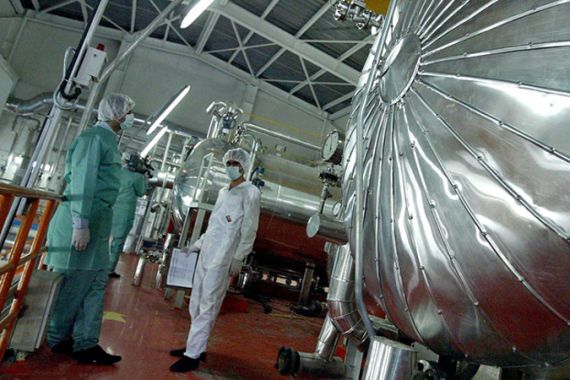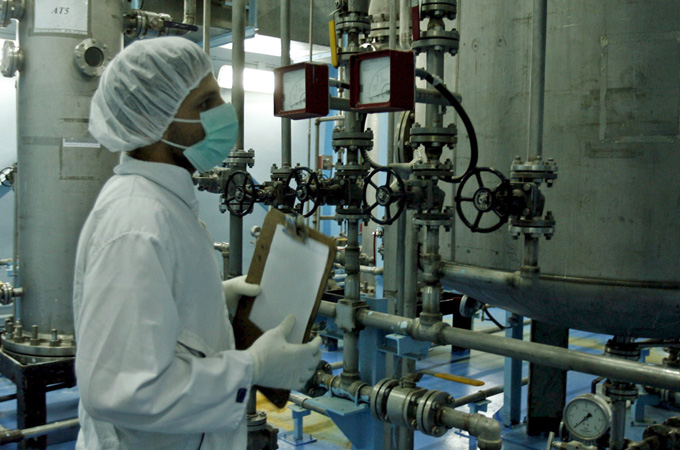Envoys in Iran for nuclear tour
Foreign diplomats set to kick off a “confidence-building tour” of country’s nuclear sites.

 |
| The rare tour to Iran’s nuclear sites has been dubbed as a confidence-building measure [EPA] |
A group of international delegates have arrived in Tehran for a two-day tour of Iran’s nuclear sites.
The group, which arrived in the Iranian capital on Saturday, consists of members of the International Atomic Energy Agency’s board of governors that include ambassadors from Egypt, Venezuela, Cuba and Syria.
The rare tour to Iran’s main uranium enrichment facility at Natanz and the heavy water installation in Arak was apparently snubbed by China and Russia, Iran’s principal allies, as well as the European Union.
While Iran has pitched the trip as a confidence-building measure, the EU said the IAEA “are the people who have to inspect the Iranian nuclear facilities”.
The Iranian move came in the run-up to talks with six world powers next week in Turkey chaired by Catherine Ashton, the EU foreign policy chief.
In another development, Ali Asghar Soltanieh, Iran’s envoy to the IAEA, said Iran would reveal new achievements on Saturday during the visit to the Arak facility.
“Today, at the heavy water installation in Arak, we will unveil several new nuclear achievements in the field of medicine,” Salehi said.
“This achievement will be unveiled in the presence of guests who we have invited from different countries and international organisations.”
Such visits to Iran’s atomic sites are infrequent. The last trip that Tehran arranged for members of the IAEA was in February 2007.
Western powers suspect Iran wants to use its uranium enrichment activities to build a nuclear bomb. Tehran denies the charge, insisting its programme is a peaceful effort to produce nuclear energy.
Iran is under four sets of UN sanctions over its refusal to suspend uranium enrichment, one of the most sensitive parts of its atomic programme because enriched uranium can be used not only to make nuclear fuel, but also the fissile material for a bomb.